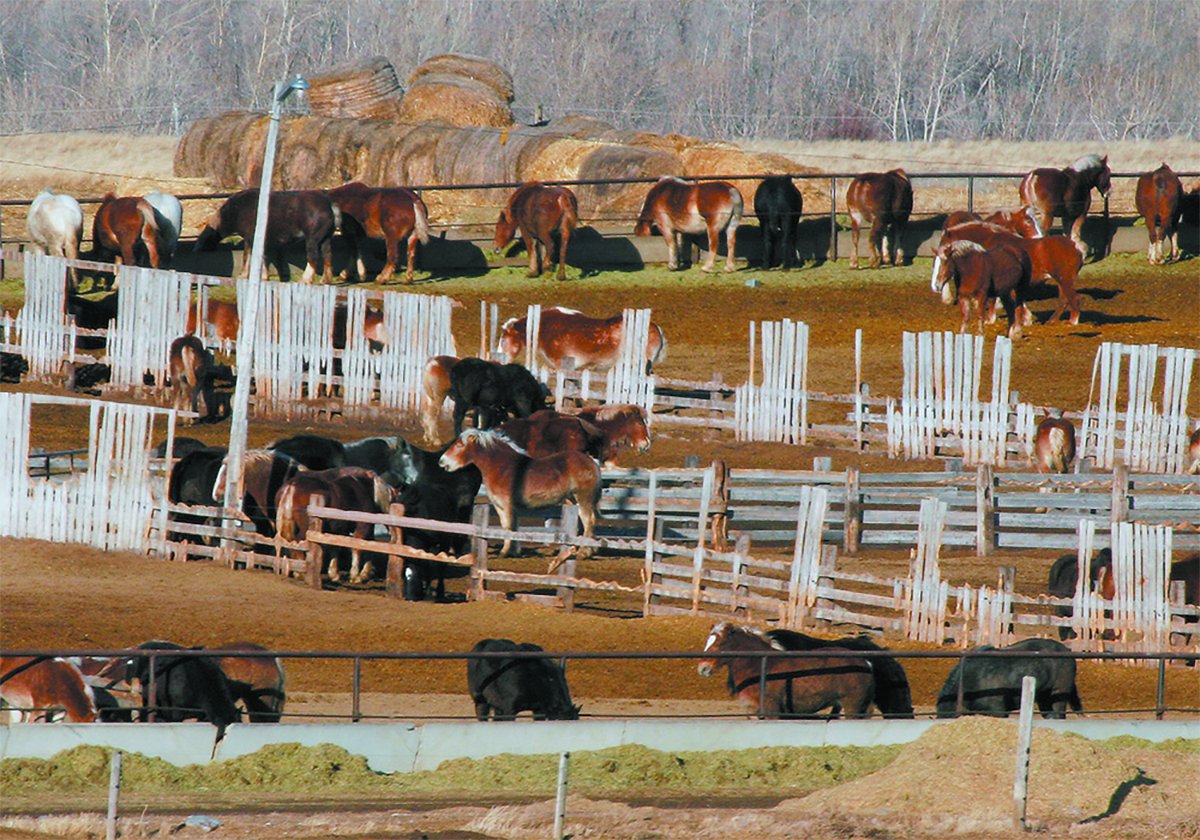An Alberta rancher who helped craft the provincial government’s new approach to livestock industry issues says Ottawa should copy the American country-of-origin labelling rule rather than fight it.
Carol Haley, a former Alberta Conservative MLA who co-chaired a policy committee for Alberta agriculture minister George Groeneveld that led to creation of the Alberta Livestock and Meat Agency, also told MPs last week that Ottawa should change its focus in dealing with the livestock sector.
She said the policy emphasis should be on branding Canadian product through support for traceability, age verification and food safety systems and then aggressively market into high-end offshore foreign markets rather than shipping most animals south as lower-value commodities.
Read Also

Canada’s slaughter horse industry lacks transparency
The lack of clear reporting and public access to data keeps the industry largely hidden, leaving questions about humane treatment and traceability unanswered.
As well, she recommended that government reduce the emphasis on subsidizing the industry.
“We have paid billions of dollars through programs such as FIDP (Farm Income Disaster Program), CAIS (Canadian Agricultural Income Stabilization), AgriStability, and still the industry continues to fail,” she said.
“We need to stop investing in the past and begin to put our money to work in ways that will be proactive and ultimately highly profitable to the entire value chain and not its subsections.”
However, in a presentation to the House of Commons agriculture committee studying livestock issues March 3, it was Haley’s comments on how Canada should react to the impending COOL regulations that drew the attention of MPs.
Her proposals were at odds with the major industry organizations that are urging Ottawa to fight the rules.
Haley said it is too late to block the rules, which could eventually require detailed label information about where the animal was born, raised, slaughtered and processed.
“I believe that rather than fighting the United States on COOL legislation, we must in fact embrace it,” she said. “We are three years too late to fight them. Where has our plan been? We have been told for three years that it was coming. Well, it’s here and we don’t have three more years to change it.”
Parallel Canadian legislation is the way to go, she told MPs.
“We should be encouraging Canadians to support their own food and livestock industries.”
While federal agriculture minister Gerry Ritz has argued that his approach to the industry is much as Haley was suggesting – less emphasis on subsidy and more emphasis on market access and innovation – he is strongly opposed to parallel COOL rules in Canada.
The Canadian Cattlemen’s Association and the Canadian Pork Council also oppose moving toward mandatory country-of-origin labelling in Canada, although they support voluntary labelling such as the recently announced Product of Canada rules.
Haley used her appearance to take shots at the Canadian Cattlemen’s Association and Alberta Beef Producers. She noted that both groups have championed the full integration of the North American beef industry, rather than a concentration on reducing dependence on the American market.
“However, it wasn’t and isn’t working well for anyone in Alberta right now.”
She said the mainstream cattle organizations take millions of dollars a year from producers through mandatory checkoffs.
“What’s the result? I don’t see a result.”
Haley also suggested the federal and Alberta governments re-evaluate the value of tens of millions of dollars they have invested or promised for the cattle industry Legacy Fund, created to fund market access efforts after BSE was found in Canada in 2003.
“I’m not sure that anybody could actually find any results for any of it.”
















